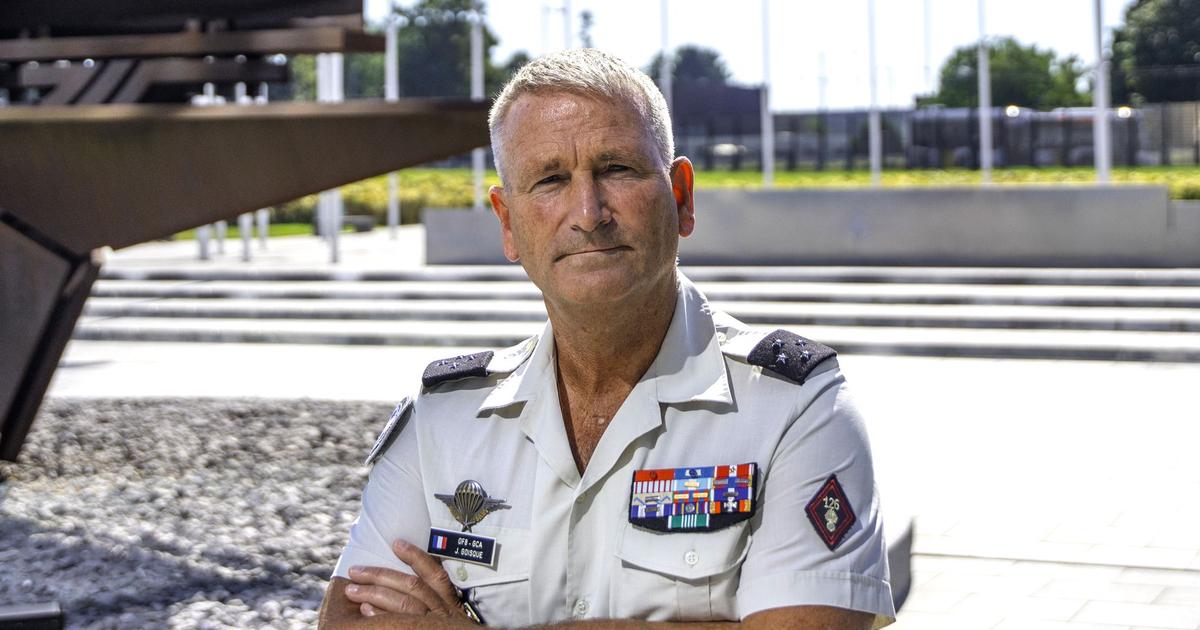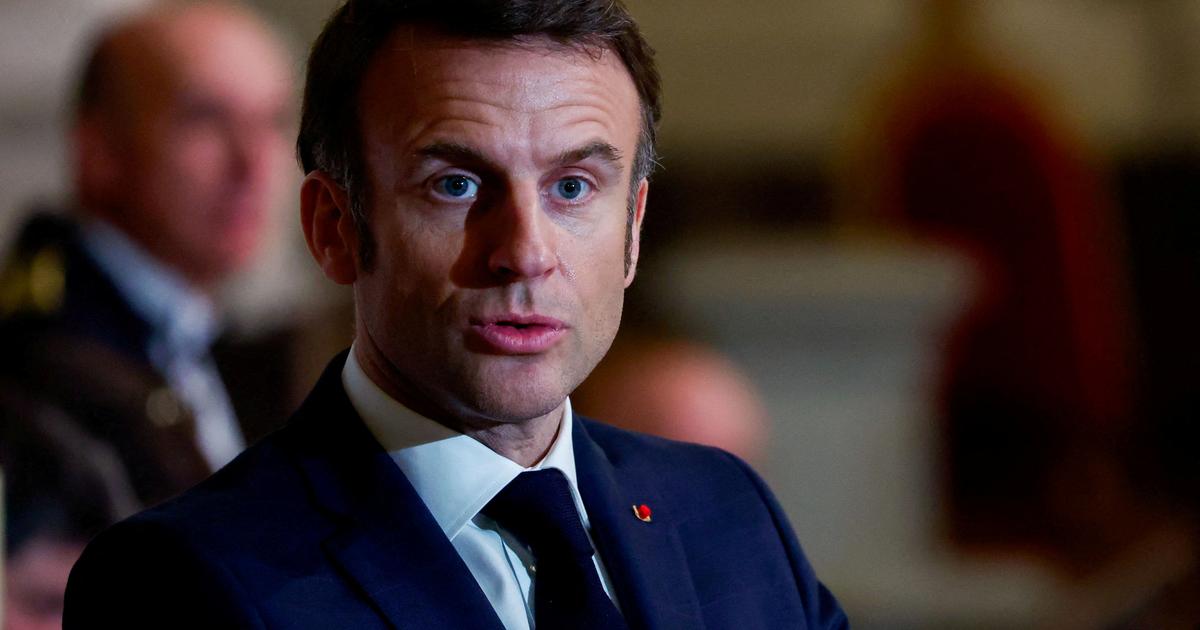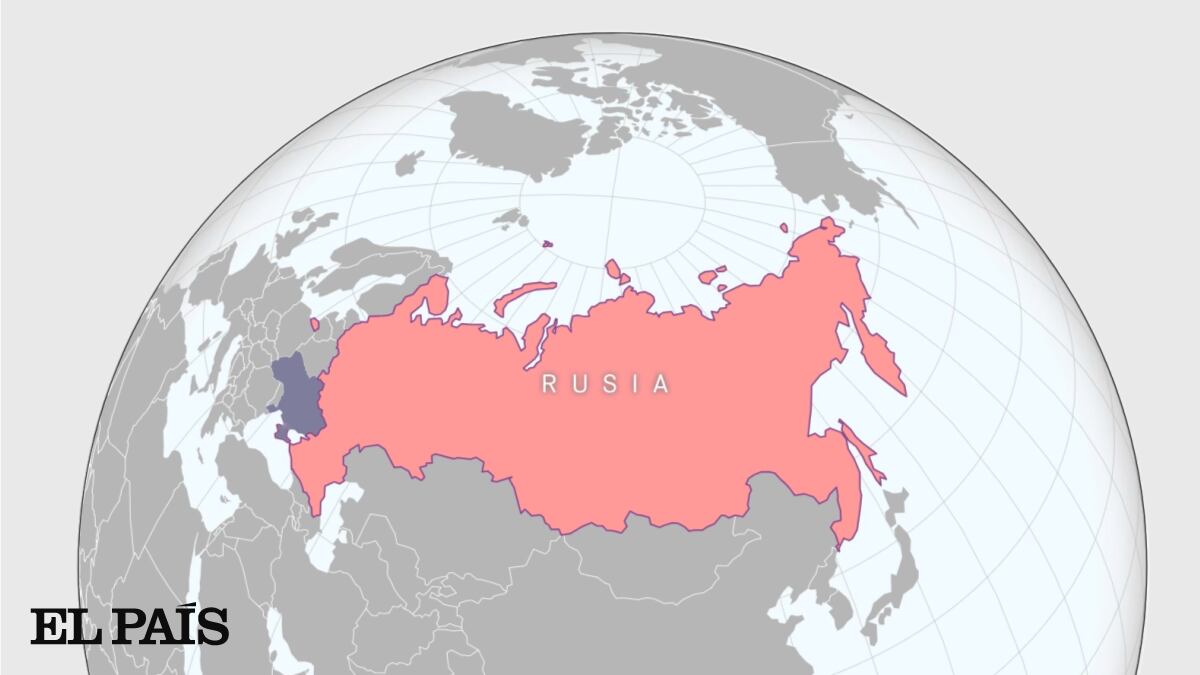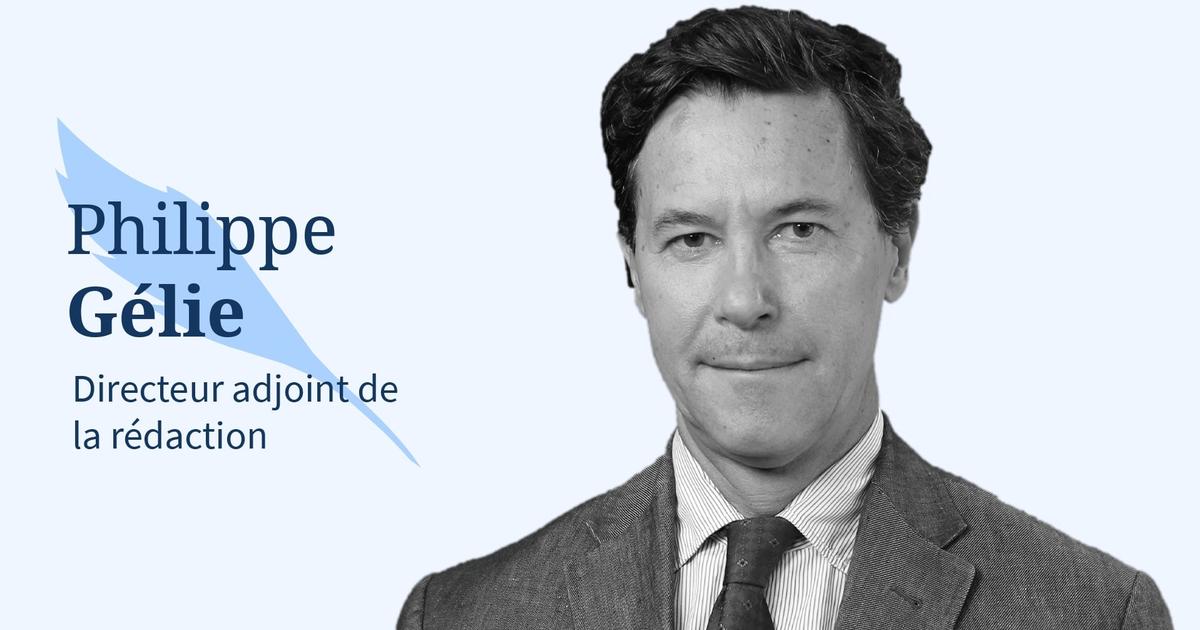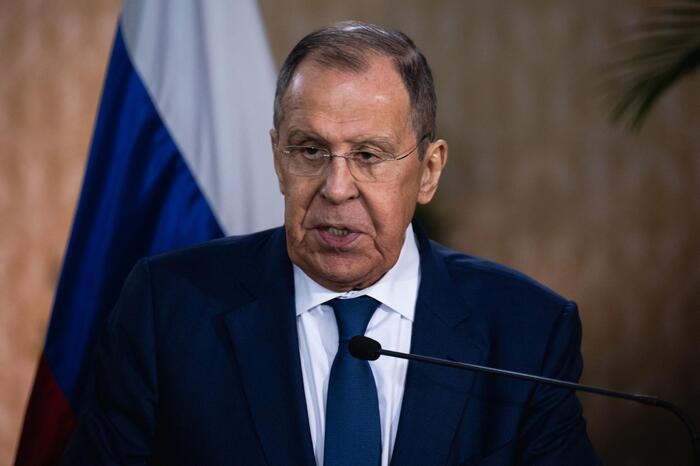The tone of Kersti Kaljulaid (Tartu, 51 years old) is low, but firm.
It is the voice of Estonia in the world.
The president of the Baltic Republic, of 1.3 million inhabitants, is fluent in international political affairs and has no problems when it comes to being self-critical of her country and the European Union (EU).
Nor does he hesitate to issue warnings about the "unpredictable neighbor", in clear reference to Russia.
Abroad, Kaljulaid proudly represents the only country whose two commanding officers are currently women: her;
and Prime Minister Kaja Kallas (43 years old).
"The girls in our country no longer wonder if they can become mandatory, that question is out of debate and I am very happy that they are aware of where they can go," she explained this Monday during a brief interview with EL PAÍS, Día Women's International, in a central hotel in Madrid.
The president was in Spain to commemorate the centenary of the establishment of diplomatic relations between the two countries.
Despite the black mask that covered a good part of his face, Kaljulaid's seriousness was perceived in his eyes when asked about a recurring theme in Europe and, above all, in his region: Russia.
“We are neighbors and we communicate.
But when talking about certain issues like trade or transportation, there are other issues like Ukraine, Georgia and Belarus that have to be on the table.
They cannot be avoided ”, Kaljulaid sentences.
Estonia, Latvia and Lithuania, the three Baltic republics, have been since 2014, in the year in which Moscow annexed the Ukrainian peninsula of Crimea through a referendum not recognized by the international community, the harshest voice against Russia within the EU .
The latest scandal, following the poisoning last summer and the subsequent arrest of Vladimir Putin's extra-parliamentary opponent, Alexei Navalni, has caused the three Baltic countries - which are still very much aware of their years of Soviet occupation - to harden the tone with Brussels demanding sanctions that were finally imposed in coordination with the new US Administration last week.
“The sanctions are mainly a signal.
You have to continue and have strategic patience ”with Russia, he explains.
He acknowledges that, despite the restrictive measures against the Kremlin, the Crimean peninsula continues to be under the command of Moscow since 2014, but insists that the results will come and that to see them it is necessary to wait.
“We were busy for more than 50 years”, he slides with some optimism and then made self-criticism: “The sanctions are still there;
We have not been able to find any way out of the crisis with Ukraine, and Georgia is partially occupied, ”he laments.
Especially a defender of free elections in Belarus, Kaljulaid refuses to accept the fact that, having a more powerful neighbor like Russia, one has to submit to it.
“We have to accept that we have a neighbor who does not see the world as a place where each nation has the freedom and the right to democratically choose what it wants.
We cannot close our eyes to what is happening, but on the other hand we have the obligation to negotiate and try to solve the problems, ”he explains.
Kaljulaid, however, rejects the binary way that many can view the Belarusian geopolitical chessboard: Moscow versus Brussels, and vice versa.
"It is very old-fashioned to think that the European Union wants to expand its area of influence in Belarus," explains the president.
"What we ask is that [Belarusians] speak for themselves," he says, referring to the repression suffered in the streets during the demonstrations calling for more democracy after the elections last August in which, once again, the nearby president the Kremlin, Aleksandr Lukashenko, was proclaimed the winner after 26 years in power.
Despite the fact that for her Russia is a clear threat in the Old Continent and especially in her region, especially after the annexation of Crimea in 2014, the Estonian president understands that there are other sources of conflict that clash with the "democratic values" of The West, an orbit to which you are proud to belong.
Estonia is the fourth country among those that contribute the most of its gross domestic product (GDP) to NATO, with 2.1%, after the United States (3.4%), Bulgaria (3.2%), Greece ( 2.2%) and at the same level as the United Kingdom (2.1%).
"We are such a small country that I don't think that amount counts," he laughs modestly.
The above countries, along with Poland, Romania, Latvia and Lithuania, are the only ones of the 30 members of NATO that allocate 2% of their GDP to the military alliance.
However, Kaljulaid sees it necessary for each member country to meet that spending commitment reached at the 2014 Wales summit - investing up to 2% of GDP by 2024 - in order to be “stronger” when it comes to coping with other threats.
And he cites a few: hybrid wars, autarchies that use personal data with impunity, development of new and sophisticated technologies, the use of artificial intelligence, the fight for the Arctic and, in his opinion, the most crucial challenges facing Europe at the moment. : climate change and the management of the covid-19 pandemic.
A disease that in his country has killed 653 people and infected 75,003, according to figures from Johns Hopkins University.
"The threats are now 360 [degrees]," he sums up.
The president recalls that her region, the Baltic, and the eastern border of the EU, has always been of great importance for a partner as powerful as the United States.
“Despite the noise, the Donald Trump Administration [and emphasizes the word 'Administration'], always had a lot of consideration for our region.
Also [Barack] Obama made it very clear that Tallinn, Riga and Vilna were as important as Paris, London or Berlin for the Alliance ”.
And with Joe Biden the relationship will be fluid: "We will take care of each other and not only because of Article 5 [of the NATO treaty, which stipulates mutual defense], which is simply a technicality, but because of the defense of democratic values."
Unit
Each sentence, each appearance of the president is loaded with messages.
At the inauguration speech of the new prime minister last February, President Kaljulaid stopped to call for unity in a society that was becoming increasingly polarized, in part due to the presence of the far right (EKRE) in the previous Executive explains.
“There were groups in society that clearly felt neglected, and I think this is something that is not unique to Estonia.
It was wrong, ”he admits.
The president describes how during the previous Executive, elected in 2019, “there was a feeling that they only addressed their voters”, to people who thought alike, something that she fiercely criticized: “It should be governed for everyone, including those who they are in the opposition (...) The democratic responsibility of a government is and should be that ”, sentence.
The Atlantic Alliance prepares its rearmament in Eastern Europe
The far right is consolidated at the polls in Estonia
Next October, the Riigikogu (Estonian Parliament) must elect a new head of state for the next five years.
Kaljulaid, although she does not reveal clearly if she will present her candidacy again, recognizes that she will always be ready to serve her country, of which she is very proud, whenever required.

/cloudfront-eu-central-1.images.arcpublishing.com/prisa/GKMGDEQIWFA33NTRI35NPMAJT4.jpg)


